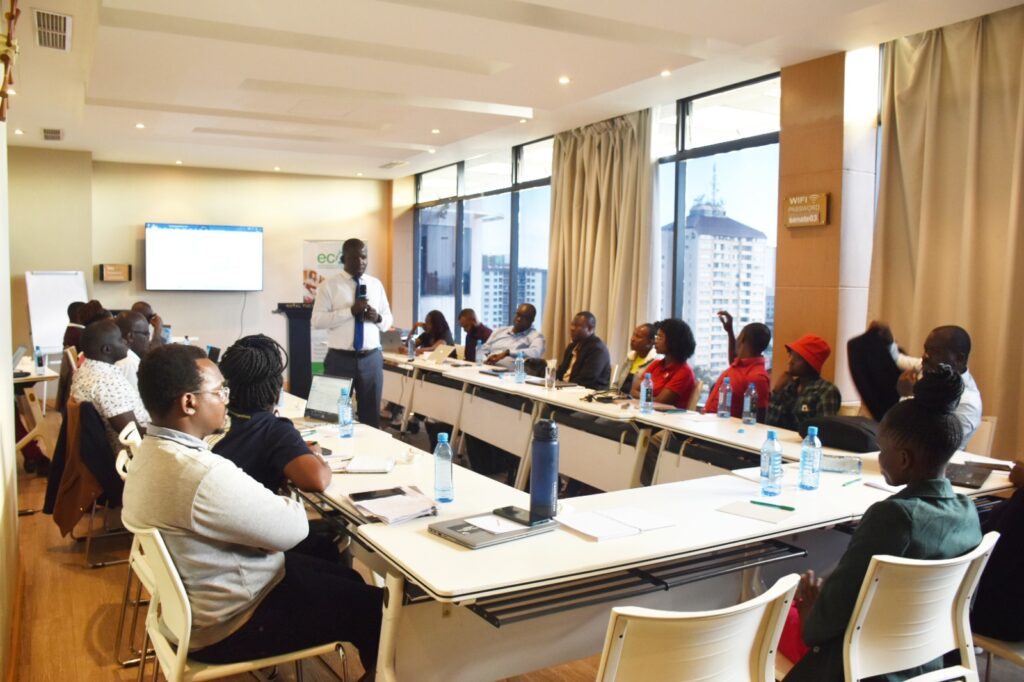
CONCEPT NOTE
INTERNATIONAL TRAINING ON ASSESSING UNCERTAINTIES IN THE NATIONAL GREENHOUSE GAS INVENTORY: A FOCUS ON LAND USE
COURSE BACKGROUND
Under the Enhanced Transparency Framework (ETF) established by the Paris Agreement, all Parties are required to estimate and report uncertainties in their National Greenhouse Gas (GHG) Inventories. This represents a fundamental shift toward more transparent, reliable, and standardized climate reporting. Accurate uncertainty analysis is essential for building trust in reported emissions and removals and for informing policy and mitigation strategies effectively.
Recognizing this critical need, the Food and Agriculture Organization of the United Nations (FAO) developed this course to support national institutions in strengthening their technical and institutional capacity for complying with ETF requirements. It focuses specifically on uncertainty assessments related to the land use sector, a complex and often variable area in national GHG accounting. This course is now delivered by Environmental Capacities and Sustainability (ECAS) as part of its commitment to advancing climate transparency and reporting readiness in developing countries and beyond.
Through a mix of conceptual explanation and applied statistical methodologies, the course enables participants to understand and perform uncertainty analyses in line with the 2006 IPCC Guidelines and the 2019 Refinement. The course is designed to empower inventory compilers, data analysts, and policy advisors to generate more robust and credible inventory data by accurately quantifying and combining uncertainties across sectors.
COURSE OBJECTIVES OF THE TRAINING
By the end of this course, participants will be able to:
- Define uncertainty in the context of national GHG inventories and explain its significance.
- Apply statistical definitions and approaches relevant to uncertainty analysis.
- Quantify uncertainty using appropriate tools and methods.
- Combine uncertainties from different sectors to determine overall national inventory uncertainty.
- Understand recent refinements in IPCC guidelines relevant to uncertainty estimations in land use reporting.
WHAT YOU WILL LEARN
Participants will gain knowledge and skills in the following areas:
- Understanding the role and significance of uncertainty in national GHG inventories.
- Key statistical concepts and definitions associated with uncertainty analysis.
- Methodologies for quantifying uncertainties in emissions and removals.
- Techniques for combining uncertainties across sectors to estimate total national inventory uncertainty.
- Updates and refinements from the 2019 IPCC Guidelines specifically addressing uncertainty in the land use sector.
DURATION AND PROGRAM
TARGET PARTICIPANTS
This course is tailored for professionals directly or indirectly involved in the preparation, compilation, or verification of national GHG inventories. These include staff from national agencies responsible for UNFCCC reporting, GHG inventory compilers, data specialists from National Statistical Offices (NSOs), and researchers focusing on land use, climate change mitigation, or statistical methodologies. It is also beneficial for technical experts and policymakers seeking to improve the reliability and transparency of their country’s climate data.
TRAINING MODULES
| No | Module | Details | |
| 1. | Uncertainty in the Context of National Greenhouse Gas Inventories |
This module introduces the foundational concept of uncertainty in GHG inventories. It explains why uncertainty analysis is essential, particularly in the context of the ETF and climate reporting under the Paris Agreement.
Topics include:
|
|
| 2. | Quantifying Uncertainty |
This module dives into the statistical principles and techniques used to calculate uncertainty. Participants learn how to apply quantitative methods and interpret data variability and confidence intervals.
Topics include:
|
|
| 3. | Combining Uncertainties |
The final module explains how to combine different types of uncertainties from multiple sectors to produce an overall uncertainty estimate for national net emissions. It also integrates the refinements from the 2019 IPCC Guidelines.
Topics include:
|
|
TRAINING STYLE
The modules will be taught through PowerPoint presentations, and lectures and will include a case study/field visit, breakout sessions, case studies and other interactive discussion components.
The course will also include a few guest speakers, both in person and via Zoom and other online learning platforms for overseas speakers. This provides useful real-world insights alongside the more theoretical aspects of the course.
The conference faculty shall consist of experienced decision makers, as well as practitioners and representatives from established educational and research institutions active around climate change, engineering and international development. Throughout the course, theoretical presentation of concepts will be moderated and more group discussions and plenary engagements will be optimized. PowerPoint presentations will be made by facilitators and resource persons, to highlight key concepts before embarking on group work.
GENERAL NOTES
- Training manuals and additional reference materials are provided to the participants.
- Upon successful completion of this course, participants will be issued with a certificate.
- We can also do this as a tailor-made course to meet organization-wide needs. Contact us to find out more: info@ecasiafrica.org.
- Payment should be sent to our bank account before the start of training and proof of payment sent to: info@ecasiafrica.org.
ABOUT ECAS INSTITUTE
The ECAS Institute designs and delivers independent and targeted training, research, and consulting services. Our work focusses on climate change and resilience building, carbon markets, renewable energy, nature-based solution, biodiversity conservation, agriculture and food systems, We are located in Nairobi Kenya and work across the African region. We have implemented training and research assignments in Kenya, Tanzania, Uganda, South Sudan, Somalia, Malawi, Rwanda, Congo, and South Africa. Globally, we have supported our partners from the UK, Denmark, Italy, Sweden, Germany, and USA.

